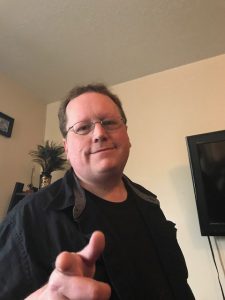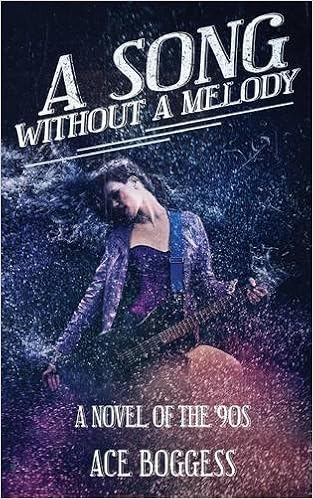
CONTRIBUTOR INTERVIEW
- Thanks for agreeing to let us interview you for Gyroscope Review. We’re pleased that you are one of our contributing poets. Will you please begin by telling us where you’re from, where you write, and why poetry?
I’m from West Virginia—Charleston, currently, but I’ve lived in many parts of the state. I write wherever I happen to be. I’ve been writing in bed a lot lately for some reason. As for why poetry, well, that’s complicated. Until a few years ago, I never thought of myself as a poet. I considered myself a novelist and just wrote poetry along the way. Then, while my novels were out there floundering under the weight of rejection letters, my poems were popping up in journals and e-zines all over the place. It got so bad that everyone I knew referred to me as a poet. It took me a while to accept that. Now, I write mostly poetry and call myself a poet, so of course I have a novel out. Funny how that works.
- Who, or what, are your poetical influences?
Early on, I loved reading Neruda and Ferlinghetti. An odd mix, I know. From there, I started reading whatever I could get my hands on. Probably the two books that have had the biggest influence on me though are David Lehman’s The Evening Sun and Without End by Adam Zagajewski. The way I like to describe is that when I’m reading those two books, I can feel the tone of my own writing shift—more kinetic and chaotic in terms of Lehman’s book, and more serious and subtle, almost soulful, with Zagajewski’s.
- How do you decide what ‘form’ a poem should take?
I rarely do until the poem is on paper. When I’m typing and revising, I play around with the lines and stanzas until they feel right. I rarely write in traditional forms, and when I do it’s a conscious choice in advance. With my new book, Ultra Deep Field (forthcoming from Brick Road Poetry Press), I forced myself into a form just to see if I could do it. What I decided on was a series of poems in unpunctuated couplets. I tried to see how much could go in a line or a stanza without the missing punctuation causing a problem for the reader (I quickly learned that the one bit of punctuation you can’t live without is the question mark). I wrote almost exclusively in that form for three years, carving out about 400 poems, of which half didn’t work at all. The other half mostly found homes in journals, and the better of those are included in the book.
- What is your writing process like?
I read for a while to get in the writing mood—usually half an hour to 45 minutes. That’s a habit I picked up years ago when I was a drug addict. I’d take my drugs and read until they kicked in, then write. The drugs are gone now, but the habit remains, and I find it an effective way to focus. When I’m ready, I write longhand in a little notebook, make a few corrections, then do all the revising and form-seeking as I type. After a poem has been typed, I revise it once and send it out. If it’s rejected, I revise again and submit again. I almost never send the same piece out twice without having tweaked it a bit. I repeat that process until the poem is either right and published or hopelessly broken and ready for assisted suicide.
- Do you belong to any writer’s groups – face-to-face or online? If so, are they part of your process?
I used to. Not anymore.
- What do you look for in the poetry you like to read? Any favorite poets?
I look for a sense of connection to the strange. I want to feel what the poets feel and experiences their lives as if my own. If they’re exhausted or fascinated or turned on, that’s what I expect to come away with. If they’re meditative, that’s the state I want to find myself in. If they’re looking at deer or rabbits or ax-wielding clowns, I want to see them too as if they’re standing in my front yard right now … which they very well might be.
- What is the most important role for poets today?
I think the best thing poets can do is to help strangers understand each other.
- Which poets have you had the opportunity to hear read? Alternatively, what is the most recent book you’ve read?
I’ve attending too many readings to remember them all. Some of the earlier ones were Ferlinghetti, David Rigsbee, Erin Belieu, Kirk Judd, and Mark Halliday. As for books, the one I’m reading at the moment is Ada Limon’s Bright Dead Things.
- Any future plans for your work that you’d like to talk about?
Right now, I’m excited about the publication of Ultra Deep Field, which will be my third full-length collection. In the meantime, I have three other full-length collections for which I’m trying to find homes.
- What other interests do you have beyond literature?
Music and movies, mostly. I used to be a news junkie, but I’m trying to break myself of that habit. It’s not good for my ulcer.
Thank you for sharing your thoughts with us. Please let our readers know where they can find more information about you or your work:
https://www.amazon.com/dp/1988292050/ref=sr_1_1?s=books&ie=UTF8&qid=1482608778&sr=1-1
http://brickroadpoetrypress.com/
On Twitter: @AceBoggess

